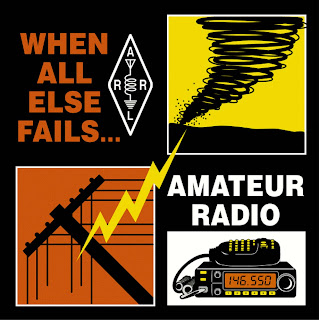Earn Your Amateur Radio Operator Certificate
"In today’s world there is a heavy reliance on centralized communications infrastructure such as cell towers, which are very likely to fail during a disaster. Failure or overload of such infrastructure will cause disruptions in communications and make the disaster response inefficient. Amateur radio does not rely on centralized communications infrastructure, and has the ability to be used to meet the demand during many disaster situations. Thus, it is very important for emergency professionals to understand the value of including amateur radio operators in emergency operations plans." (International Journal of Emergency Services, Vol. 9 No. 2, pp. 109-121, https://doi.org/10.1108/IJES-10-2018-0054) - VA7GUR
Amateur Radio in Canada is regulated by a federal government department called Innovation, Science and Economic Development Canada (ISED; formerly Industry Canada).
The first level of authorization is the Amateur Radio Operator Certificate with the Basic Qualification. Passing (70%) a multiple choice exam of 100 questions will provide you with your own call sign and allow you to operate on all Amateur Radio frequencies above 30 MHz. These are most often used for relatively short-range radio to radio communications that can be extended to greater distances using “repeaters” operated by other Radio Amateurs.
The next level of authorization allows Radio Amateurs to use all of the Amateur frequency bands including those allowing direct communications with other Radio Amateurs over much greater distances.
There are two ways to achieve these greater operating privileges: by passing the Basic exam and also by demonstrating the ability to send and receive Morse Code at 5 words per minute or by scoring a higher mark on the Basic exam. The “Basic with Honours” qualification is awarded to persons who get 80% or higher on the 100-question, multiple choice exam. Today the majority of candidates who pass the Basic exam achieve Honours and are able to use all Amateur Radio bands immediately.
The Advanced Qualification added to your Basic Qualification will allow you build and operate your own transmitting equipment, sponsor a club station, run higher power and operate your own repeater station. To earn this qualification requires passing a 50-question multiple choice examination on radio theory.
The examinations may be taken in any order but station operating privileges require a Basic Qualification. Candidates for the examination for Basic, Morse Code or Advanced qualifications are examined by an accredited examiner. (https://www.rac.ca/requirements/)
In the United States there are three amateur radio license classes — Technician, General and Extra.
The Technician class license is the entry-level license of choice for most new ham radio operators. To earn the Technician license requires passing one examination totaling 35 questions on radio theory, regulations and operating practices. The license gives access to all Amateur Radio frequencies above 30 megahertz, allowing these licensees the ability to communicate locally and most often within North America. It also allows for some limited privileges on the HF (also called "short wave") bands used for international communications.
The General class license grants some operating privileges on all Amateur Radio bands and all operating modes. This license opens the door to world-wide communications. Earning the General class license requires passing a 35 question examination. General class licensees must also have passed the Technician written examination.
The Amateur Extra class license conveys all available U.S. Amateur Radio operating privileges on all bands and all modes. Earning the license is more difficult; it requires passing a thorough 50 question examination. Extra class licensees must also have passed all previous license class written examinations. (https://www.arrl.org/getting-licensed)

.png)


Comments
Post a Comment